Denying Children’s Literature: When Adult Authors Talk About Youthful Indiscretions
 A couple weeks ago the June 6/13 edition of The New Yorker was the Fiction issue, and in it were essays by five authors, each subtitled “Childhood Reading.” As you might expect, they were ostensibly memories of books read by these authors when they were young. I approached each one with a bit of trepidation, though. Recently I’ve been noticing a tendency that is by no means new, but has only grabbed my attention since I became the Collection Development Manager of Evanston Public Library. It’s a tendency that may even explain why it is that so few adult authors are good at writing books for children.
A couple weeks ago the June 6/13 edition of The New Yorker was the Fiction issue, and in it were essays by five authors, each subtitled “Childhood Reading.” As you might expect, they were ostensibly memories of books read by these authors when they were young. I approached each one with a bit of trepidation, though. Recently I’ve been noticing a tendency that is by no means new, but has only grabbed my attention since I became the Collection Development Manager of Evanston Public Library. It’s a tendency that may even explain why it is that so few adult authors are good at writing books for children.
Do you have the June 6/13 edition of The New Yorker on hand, by the way? Pick up a copy and follow along with me and let’s find out if anything catches your eye.
ADVERTISEMENT
ADVERTISEMENT
- The first piece is called “The Book” by Hisham Matar. In it, the author recounts the stories he was read by the adults in his life. He mentions, “It never occurred to me then to question why there were hardly any books for children in the house; none that I can remember, anyway.”
- In “Uninhabited” by Kevin Young the author describes how, as a child, he once read all of Robinson Crusoe in a weekend, and had enjoyed Gulliver’s Travelers earlier that year. Some mention is made later of his enjoyment of Thirty Seconds Over Tokyo which was “a brutal and gory account of the U.S. bombing of Japan during the Second World War, which I had stumbled across…”
- “Surrendering” by Ocean Vuong discusses the moment when an encounter with an audiotape of Dr. Martin Luther King Jr. led the author to write a poem so adept that he was accused of plagiarism.
It is not uncommon for authors of works for adults, when asked what they read as kids, to disassociate themselves entirely from the world of children’s literature. They will often call upon books that straddle the adult and child world, like Treasure Island or One Thousand and One Nights, as if it would be a dangerous thing to admit to having seen a Harriet the Spy or, heaven help you, a Choose Your Own Adventure book. Recounting how you had to stick your fingers in the pages to work your way back from terrible choices would actually make for a lovely little written piece, but that is not their way.
The New Yorker articles are hardly the only examples of this phenomenon, of course. Each Sunday I dutifully read the New York Times Book Review and take time to pore over the interviews in the “By the Book” section. And each time they’ll ask the interviewee what they read as kids. Here are some recent answers:
Nathan Philbrick: In elementary school I read every book about World War I and II that I could get my hands on: Ted Lawson’s “Thirty Seconds Over Tokyo,” Paul Brickhill’s “The Great Escape,” Robert Donovan’s “PT 109.” The one very notable exception was Mark Twain’s “Huckleberry Finn,” which I read in sixth or seventh grade. Huck’s voice seemed so real, and the scenes on the river were mesmerizing for a kid from Pittsburgh.
Siddhartha Mukherjee: Rail-thin, anxious, despondent, always hungry. I read like a madman: My mother, desperate to feed me material, started collecting old newspapers from the neighbor’s trash. The childhood books that I particularly recall are Agatha Christie and Sherlock Holmes — both of which I still love to read on vacation. And Salman’s “Midnight’s Children.”
Sebastian Junger: My father grew up in Europe and was relentlessly erudite. That translated into me reading a lot. I read “Moby-Dick.” I read “The Three Musketeers.” I read “Two Years Before the Mast.” And I read anything I could get my hands on about the American Indians and anthropology in general because — by age 12 or so — I’d decided that life in a Stone Age tribe was far more appealing than life in the suburbs, where I lived.
And so on and such.
There are always exceptions. Authors that haven’t been publishing very long often mention true children’s books without any shame at all. Tig Notaro, for example, was asked what she read as a kid, answered, without hesitation, that she loved Beverly Cleary and Amelia Bedelia. The Times asked, “What’s your favorite book to recommend to children?” Answer: ” “Ribsy,” by Beverly Cleary. I have read that book probably one billion times. It never disappoints. I still have it on my bookshelf at home.”
But there’s another factor that seems to be at play here. Looking through a lot of the answers, I noticed that women were more inclined to admit to real books for read kids than their male counterparts. Mary Roach loved Misty of Chincoteague, after all. In the issue of the New Yorker I mentioned earlier, Tessa Hadley waxed eloquent about The Secret Garden while Rivka Galchen should win an award for being the most-up-to-date on her references, thanks to her own children. In “Where Is Luckily” she mentions Moomins, Elephant & Piggie (“in which the protagonist deliberates extensively about the ethical and gustatory implications of sharing…”), Cat in the Hat, The Snowy Day, and the Cozy Classics board book version of Moby Dick.
Is it possible that men generally remember books they encountered much later in life than women, and that’s why you get so many references to Thirty Seconds Over Tokyo (which apparently everyone and their brother used to read)? I should note that women will often also eschew mentioning children’s books by name. For example, in her own interview with the Times, Louise Erdrich says she was an inveterate bookworm, but fails to mention a single book she encountered.
ADVERTISEMENT
ADVERTISEMENT
In the end, I just have to assume that saying you were the kind of kid who preferred Tom Brown’s Schooldays to, say, R.L. Stine is just the cool thing to do. Good readers read everything, and when they read everything it gives them fodder for their adult writing lives. Heck, if someone asked me what I read when I was a kid I could toss off some nonsense about how I once picked up Puck of Pook’s Hill and that Kipling was really saying something directly to me when first I read “The Bee Boy’s Song”. But honestly, it ain’t true. Wait Till Helen Comes by Mary Downing Hahn was far more influential in my life. Doesn’t sound good on paper, though.
I always get a little touchy when adult authors start speaking about children’s literature with an air of authority. For those of us who work with the craft every day, it can feel a bit like they think no one has come up with these ideas before. Nonetheless, sometimes you get some really insightful considerations. Two recent pieces pair very well together. The first is the aforementioned “At Home in the Past” by Tessa Hadley, where the author speaks at length about encountering The Secret Garden as an adult. Though she makes the not insignificant error of saying, “Who would dare to begin a children’s book now with this raw, spare first chapter…?” (it’s a great opening to the book, no question, I suspect we could work up a great list of contemporary books to rival it if called upon to do so), the bulk of the piece is a contemplative consideration of how a good book for kids can continue to enthrall even the most skeptic adult. She ends it so beautifully too. “…I’m not sorry that I grew up on this rich ruitcake diet of feeling and moralizing. There are worse things. This is one of the miracles that fiction works: you can be a doubter and a believer in the same moment, in the same sentence.”
Compare that to Francine Prose’s piece at the back of the New York Book Review section of the Times this past Sunday. When asked “Is It Harder To Be Transported By a Book As You Get Older?” she offers a lovely piece on how “for many children, the line between reality and the imagination is thinner and more porous than it is for most adults.” She recalls her own history with E. Nesbit, Edward Eager, The Borrowers, and Mary Poppins, eventually coming to the conclusion that while an adult may take a “dip” in a book, children are capable of taking a “soak”. She shares the page with Benjamin Moser who mentions children’s books off-handedly, preferring to discuss Les Miserables, The Count of Monte Cristo, and War and Peace.
Perhaps the authors in these interviews are invariable older. When I was a kid the distractions to lure us away from reading were restricted to the television. Now kids have a lot more devices to play with. Combine that with the incredibly healthy children’s book market, and if I were a betting woman I’d say that in twenty or thirty years you’ll see answers about what people read that mention a lot more actual children’s literature. Until then, let’s load those kids out there down with some great books. Moby Dick can wait.
Filed under: Uncategorized
About Betsy Bird
Betsy Bird is currently the Collection Development Manager of the Evanston Public Library system and a former Materials Specialist for New York Public Library. She has served on Newbery, written for Horn Book, and has done other lovely little things that she'd love to tell you about but that she's sure you'd find more interesting to hear of in person. Her opinions are her own and do not reflect those of EPL, SLJ, or any of the other acronyms you might be able to name. Follow her on Twitter: @fuseeight.
ADVERTISEMENT
ADVERTISEMENT
SLJ Blog Network
2024 Books from Pura Belpré Winners
Winnie-The-Pooh | Review
Parsing Religion in Public Schools
Crafting the Audacity, One Work at a Time, a guest post by author Brittany N. Williams
ADVERTISEMENT



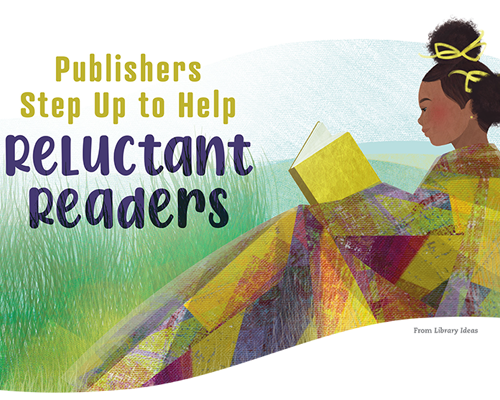
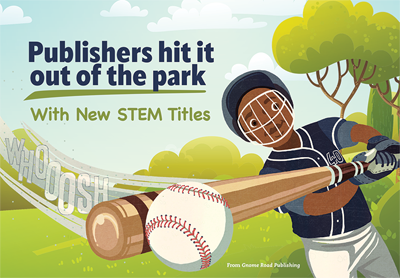
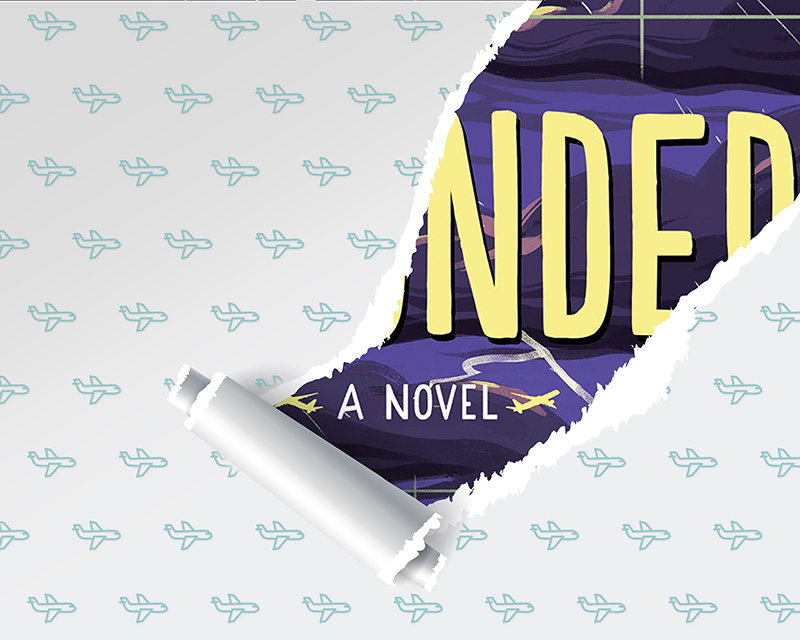
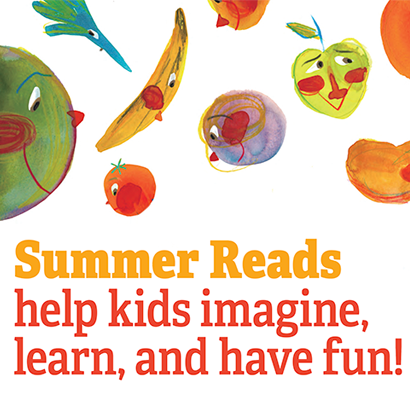
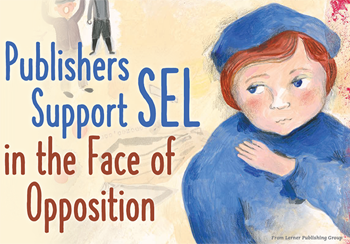
Thanks for bringing this topic up. It reminds me of how I mostly skipped children’s fiction as a young boy/teen, instead grabbing juvenile non-fiction and adult fantasies, left and right. It wasn’t until I entered college that I “rediscovered” how good children’s fiction books were. I realized how much I’d denied myself by trying to “read up.” But now, I much prefer children’s books to the adult ones I used to read. There is a more casual and wondrous tone to children’s books that really strikes a cord with my inner child.
Probably the most memorable children’s books I read as a child/teen were There is a Monster at the End of this Book, followed by some Choose-Your-Own-Adventure books. Too bad I didn’t delve into more children’s books at the time as I feel I missed out on making some great memories as a kid… although now I get to have them as an adult… so I guess it isn’t all bad.
Best Wishes,
Joseph Miller
Well, like I say, the market is very different today too. I feel like there are a lot more options for kids these days. When we were younger, you really had to turn to adult literature in lieu of anything else. That may be changing.
Joseph – I was just about to write about ‘The Monster at the End of this Book’! I loved that story. It’s one of my all-time favorites. I have tremendous affection for Dr. Seuss, for Beverly Cleary, for Marguerite Henry – I read just about every book or story or poem they created, in addition to Shakespeare, in addition to classic fairy tales, in addition to history books. Man, E.B. White. Anything having to do with King Arthur. I even read sports biographies as a kid. Adult, young adult, kids books – I never really cared (and still don’t) about where the book happened to be filed in a bookstore. If it looked interesting, I read it.
Ok, I don’t read horror. Too easily startled. I participated in a Q&A with a literary agent who deals with a lot of horror books. To her query about our favorite horror stories, I did – in fact – answer with The Monster at the End of this Book. And cracked her up. Great book.
As a children’s librarian, I frequently get grandparents and parents (mostly male, to be honest) who want to share the books they remember reading as children with their kids. All too frequently, they want Moby Dick, Huckleberry Finn or Captains Courageous, and they think that their 7- or 9-year-old can read the “real” book. They are almost always taken aback when they are handed the original version of the book. (If we even have it in the children’s or teen collection.)
Some will leave with one of the Classic Start books, but sometimes I manage to give them something that I think they might remember reading if they stretch their memories (Henry Huggins, Charlie and the Chocolate Factory, My Father’s Dragon). Occasionally, they’ll see our Hardy Boys books when looking at the Classic Starts, and take one of those instead,( with exclamations of delight.)
I have the Classic Starts in our library because there seemed to be a need for them. Other than that, I buy the unabridged book to add to the collection. I will purchase a graphic retelling, but I tend to stay away from books that are edited or abridged. But looking back, it seems like in the 40s through the 70s, there were more adaptations and abridgements available. I do wonder if some of these older adults might be remembering their fond first encounter with a story in their formative years in an abridged or edited version.
I enjoyed this essay about the New Yorker essays. I’m always intrigued by what authors read as children. I’m an avid reader now–scores of books each year–but as a child I didn’t read much of anything. The only book I recall reading as a child is The Pokey Little Puppy. We had a few books in our house–a picture edition of Tom Sawyer and maybe another classic–but my parents weren’t big readers so we never had children’s books around. In my school library I always checked out books of football or baseball stats, but I can’t remember any fiction. It wasn’t until I read the Narnia series in eighth grade that I really started getting interested in fiction. It’s amazing how dependent on one’s parents a budding reader is. In my mind, people didn’t even write children’s books until the 1980s! But at least I never read Thirty Seconds over Tokyo.
As a children’s librarian of many years now, I’m not at all ashamed to say that one of my favorite books of childhood was Harriet the Spy. I do believe it was read widely when I was in 5th grade (1967-68) and a group of us started keeping notebooks, just like Harriett. When I was small, my family had a large collection of Marguerite de Angeli’s books, which were read and re-read (I still have some of them). And, well, an array of Golden Books. And piles and piles and piles of comic books!
I also remember with great fondness reading “Thirty Seconds Over Tokyo,” which I owned in the lift-the-flap, board book edition.
HA!!
I personally preferred the coloring book.
“30 Seconds Over Tokyo” was published in a Landmark edition for children in 1953. I remember my brother reading it when he was about 8 (he was a precocious reader). Perhaps it’s the children’s edition that male authors remember reading?
Connie, I think you’ve just solved our mystery. Which is to say, my mystery.
i’m glad you mentioned Thirty Seconds over Tokyo because I hadn’t thought about it for many years. I read it back in 7th grade, which was back around 1967. Everyone and his brother did indeed read it back then but there were a lot fewer books. Everyone read that one. Everyone read Rabbit Hill. Everyone read comics. We all liked them but there wasn’t as much to choose from. Betsy has said we’re in a new golden age of children’s publishing and you can believe it.
Betsy has said we’re in a new golden age of children’s publishing and you can believe it.
If you really like historical fiction or fantasy with a lot of pages. And I do like those, and so do my nieces, so great! but I feel we’re missing out on what was a staple of my childhood reading (in the 90s) – shorter, quirky books. Like Bunnicula, or The Plant That Ate Dirty Socks, or Three Lives to Live, or Mail-Order Wings.
(Okay, Wings is probably more conventional sci-fi, but still.)
Those books are a lot friendlier for poor or reluctant readers, but books of that length are getting harder to find. I don’t see why there can’t be room on the shelves for short books AND long ones, for deep and meaningful stories AND lighter works.
I wonder if so many of the authors remember what I think of as “marathon books” (Moby Dick, certainly, but also Kidnapped or The Three Musketeers or Little Women) because these were books that were given to them by adults who praised their children for reading them. Having a parent talk to you about a book s/he loved–especially if the parent gives you a copy of it–is a big deal for a child. Also, if you own a book, your eyes pass over the title every day, and that book stands a better chance of being remembered than the books you took out of the library. (Unless, that is, you grow up to be a librarian, in which case you can pasture your mind on A LITTLE HOUSE OF YOUR OWN, SPIDERWEB FOR TWO, LITTLE WITCH, and SENSIBLE KATE (all winners, as far as I’m concerned.)
When I try to reread the book I loved most as a young teen, Little Women, I am astonished at the old fashioned language and the alien (to a girl growing up in the Philippines ) setting. And yet I remember reading it many times, and returning time and again to re-read the most delicious scenes (which had to do with Jo’s writing frustrations). Was I totally immersed in that fictive dream? Did I skip the more turgid paragraphs? Was the clean slate that was my child’s brain more receptive then? My memory of that book is entirety emotional. An aligning of my desires with Jo’s. How I wanted to be Jo.
Betsy, call me obtuse, but I am having a difficult time understanding what you are trying to say in a concise way. I feel like this is a great topic but what is your “thesis.” Are you trying to say that most people that grew up to be writers don’t seem to have read any actual books for children? That their natural bent towards writing and reading lead them towards “the classics” rather than pleasant, fun, enjoyable reading? The end result being that they find it difficult to write books children will enjoy?
Not at all, though it could certainly be interpreted that way. I’m just curious as to why authors of adult books always list books that are either outdated classics (like Treasure Island) or full-on adult literature when asked what they read as kids. I never reach a conclusion on the matter. I just noticed that this comes up again and again and again. Which, in turn, may have a connection to the fact that so few of them are able to write for children themselves. Or it may not. This is simply a case of me tossing out the evidence, allowing folks to make of it what they will.
p.s.this is zee, formerly writer of Zee Says, now called “I Won’t Go Back”
I remember reading a LOT of classics in the early-mid 80s that I got from Scholastic (book fairs and the take home papers) THey do not seem to have anything like that anymore. I also think it very likely we remember reading better things we read later in life than the first books. I don’t remember much before 4th grade, personally.
I still have children in my school library who eschew children’s fiction for 30 Seconds over Tokyo, the classics, and nonfiction. They will tell me that our fiction titles are all rubbish, except for whatever they find as an exception, like Harry Potter. Maybe they will grow up to be New Yorker authors.
I think my other students who are excited by Wonder, Smile, Fuzzy Mud and the War That Saved my Life will get more out of their choices.
no one but no one read nancy drew? come on!
I thought about mentioning Nancy Drew and her fans. She does get mentioned, but not usually by authors per se. As I recall, two of our Supreme Court Justices mentioned that as girls they read her.
I read Nancy Drew. But there are many books I would mention before her, including Trixie Belden and Bobbsey Twins.
I read SO many books as a kid that I’d have to pick and choose when asked such a question. And the answer may well change depending on how the question was asked and what was the topic of the question before then.
I remember Betsy did a 100 favorite books a while back and we had to come up with a list of 10 of our personal favorites, ranked in order. None of what I mentioned went into that list as I sent it in. (Nancy Belden, Bobbsey Twins, or Trixie Belden) I don’t think Nancy Drew made it onto the top 100 at all.
I read one or two Nancy Drew and didn’t care for them, so they would never make my list. I was, however, obsessed with the Childhood of Famous Americans series the summer before second grade. OBSESSED! But, I was also the kid that regularly read and reread the portions of the encyclopedias at home that focused on mythology, anthologies of Grimm’s and Anderson’s Fairytales, and a collection of Poe short stories all before I turned to an odd combo of adult horror and Agatha Christie novels around ages 10 and 11. I didn’t have as much exposure to children’s literature – specifically middle grade literature – as a lot of kids did. As an adult, I both do and don’t regret this. I don’t regret reading what I read instead of those books, but I sure did miss out on a lot of books that I probably would have liked.
As a kid I read everything from Ivanhoe to Hardy Boys. So, great literature and also Ivanhoe.